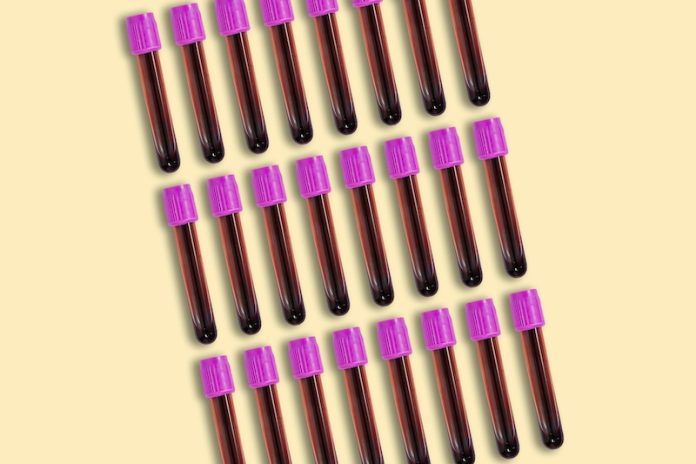
In a recent study published in Nature Genetics, researchers at the Radcliffe Department of Medicine have discovered a new and more complex way that mutations in a gene called TP53 work with inflammation to cause an aggressive form of leukemia.
Led by the Mead Group, the study uncovers how this mutation interacts with inflammation to make the disease worse.
The Role of TP53 in the Body
The TP53 gene is often referred to as the “guardian of the genome” because it plays a crucial role in protecting the body from cancer. When working properly, this gene helps prevent damaged cells from growing and multiplying, which reduces the risk of developing cancers.
However, TP53 is also the most commonly mutated gene in human cancers. When this mutation occurs, it interferes with the body’s natural defenses and increases the risk of cancer growth.
Blood Stem Cells and Leukemia
Blood is made up of many types of cells, and these cells come from hematopoietic stem cells (HSCs). HSCs are vital for keeping the blood system healthy because they can turn into different types of blood cells depending on what the body needs.
For example, if you get an infection, these stem cells help produce white blood cells to fight it.
However, when the TP53 gene mutates, these stem cells start behaving differently. Instead of turning into healthy blood cells, they can start leading to cancer, particularly a type called acute myeloid leukemia (AML).
This type of leukemia is aggressive and hard to treat, which makes it important to understand how it develops.
Inflammation’s Dangerous Role
Inflammation is the body’s response to harmful things like infections or injuries. Usually, it’s a good thing because it helps the body heal. But when the TP53 gene is mutated, inflammation can become harmful.
The study found that inflammation causes the TP53-mutated stem cells to multiply more quickly than usual. This not only disrupts the normal process of blood cell production but also allows cancerous cells to grow.
For people with a healthy TP53 gene, inflammation usually leads to damaged cells dying off—a process known as programmed cell death.
This prevents the damaged cells from causing more harm. But when the TP53 gene is mutated, this process doesn’t work correctly, allowing the damaged cells to keep growing and spreading cancer.
A New Way to Study Cells
The researchers used a special technique called TARGET-seq to study individual cells. This technique allowed them to identify which stem cells had a TP53 mutation and how these mutated cells were behaving as the disease progressed.
What they found was that the mutated cells were becoming more active in response to inflammation, particularly in the genes linked to inflammatory processes.
The team also experimented with mice and found that inflammation led to an increase in the number of mutated cells. These cells also became more resistant to programmed cell death, meaning they didn’t die off as they should, allowing cancer to continue developing.
Why Mutations Lead to More Cancer
Another key finding was that TP53 mutations change the way cells repair their genetic material when it gets damaged.
Normally, cells have ways to fix mistakes in their DNA, but the TP53 mutations make this process less effective. As a result, more errors pile up in the cell’s genetic material, speeding up the development of cancer.
In short, inflammation and TP53 mutations create a dangerous cycle where inflammation helps the mutated cells grow, and the mutations make it easier for more genetic damage to happen, leading to cancer.
What This Means for the Future of Cancer Treatment
Dr. Alba Rodriguez-Meira, one of the researchers involved in the study, believes that these findings could lead to better ways of detecting leukemia early and developing new treatments.
Understanding how TP53 mutations and inflammation work together could help doctors identify the disease sooner and find ways to stop it before it becomes too aggressive.
Professor Adam Mead also highlighted the importance of the study, noting that the connection between inflammation and cancer-causing mutations is significant.
The next challenge will be figuring out how to stop this process to prevent or slow down the progression of cancer.
Conclusion
This study sheds new light on how chronic inflammation and genetic mutations can work together to cause aggressive forms of leukemia.
By understanding this relationship better, scientists may be able to create better detection methods and treatments, offering hope to patients dealing with cancers driven by TP53 mutations.
Studies have also shown that taking care of your health can reduce inflammation. For instance, vitamin D has been found to help with inflammation, while vitamin K may reduce the risk of heart disease by one-third.
For more information about health, consider exploring recent studies on how to control inflammation and what foods may trigger it.
You can find the complete research in Nature Genetics.
If you care about cancer, please see recent studies about new way to increase the longevity of cancer survivors, and results showing new way to supercharge cancer-fighting T cells.
For more information about health, please see recent studies about how drinking milk affects risks of heart disease and cancer and results showing that vitamin D supplements could strongly reduce cancer death.
Copyright © 2024 Knowridge Science Report. All rights reserved.



